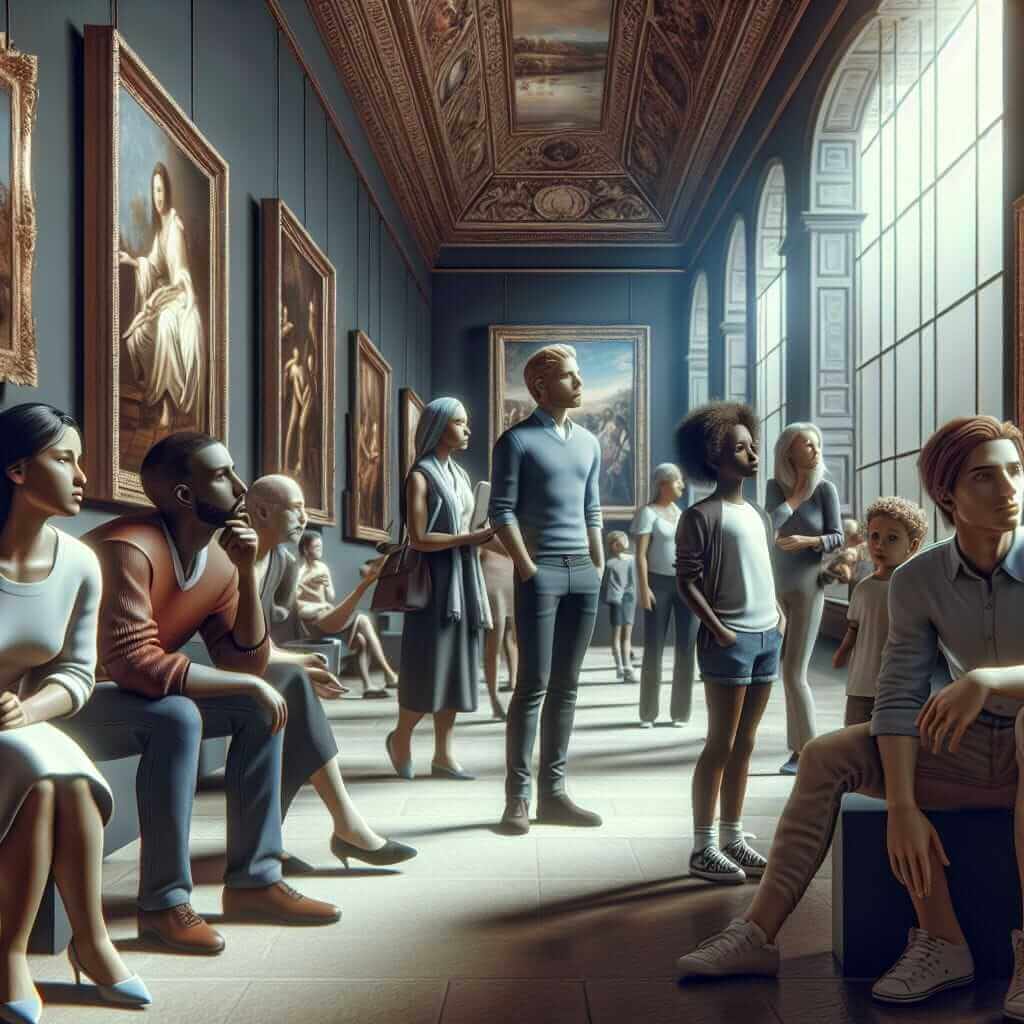As an IELTS instructor with over two decades of experience, I often encounter students who feel anxious about the unexpected nature of the Speaking test. A common concern is how to answer less familiar topics, such as the question “When did you last visit an art exhibition?” While this prompt might seem daunting at first, it offers a fantastic opportunity to showcase your vocabulary and fluency. This article provides a comprehensive guide to tackling this question effectively, boosting your confidence for the IELTS Speaking test.
Understanding the Examiner’s Intent
Remember, the IELTS Speaking test assesses your ability to communicate effectively in English. The examiner isn’t expecting you to be an art connoisseur! The goal is to evaluate your:
- Fluency and Coherence: Can you speak naturally, connecting your ideas smoothly?
- Lexical Resource: Do you possess a wide range of vocabulary and use it appropriately?
- Grammatical Range and Accuracy: Can you use a variety of sentence structures correctly?
- Pronunciation: Is your speech clear and easy to understand?
The “art exhibition” topic allows you to demonstrate these skills by talking about:
- Personal experiences: Describing a past event.
- Preferences: Sharing your likes and dislikes regarding art.
- Opinions: Expressing your thoughts and feelings about art or exhibitions.
Crafting Your Response
Even if you haven’t visited an art exhibition recently, there are several ways to approach this question:
1. Be Honest and Engaging
It’s perfectly fine to admit that you haven’t been to an exhibition lately. You could say:
- “To be honest, it’s been a while since I last attended an art exhibition. My work schedule has been quite demanding recently. However, I do enjoy…”
- “I can’t recall the exact date, but I vividly remember visiting a fascinating exhibition…”
Key Tip: Shift the focus to your general interest in art or a memorable experience.
2. Describe a Memorable Exhibition
Think about any art-related experience, even if it wasn’t a formal exhibition:
- School trip to a museum: “When I was in school, we went on a trip to a history museum. I was particularly impressed by…”
- Local art fair: “Although it wasn’t a large-scale exhibition, I recently attended a local art fair. I found the work of some emerging artists to be quite inspiring…”
- Visiting a place with significant art or architecture: ” While traveling in Europe, I was blown away by the architecture of the cathedrals. It felt like stepping back in time and witnessing true artistic mastery.”
Key Tip: Use descriptive language to bring your experience to life. Talk about the atmosphere, the artwork that stood out to you, and how it made you feel.

3. Discuss Your Artistic Interests
Even if you haven’t attended a physical exhibition, you can discuss:
- Online exhibitions or virtual tours: “I haven’t had the chance to visit a physical exhibition lately, but I frequently explore online galleries and virtual tours of museums. I find it a great way to…”
- Your favorite artists or art forms: “I’m a huge admirer of (artist’s name). I find their use of color and technique to be captivating. I’m always eager to learn about upcoming exhibitions of their work.”
Key Tip: This demonstrates your knowledge and passion, showcasing vocabulary related to art forms, techniques, and artists.
Example Response
“It’s been a while since I’ve been to a traditional art exhibition, but I recently took a virtual tour of the Musée d’Orsay in Paris. I’ve always been fascinated by Impressionism, and seeing the works of Monet and Renoir in such detail was incredible. It actually inspired me to try out some painting myself!”
This response:
- Addresses the question honestly: Acknowledges that it’s been a while since a physical visit.
- Provides a relevant alternative: Discusses a virtual exhibition experience.
- Expresses personal interest: Shares a passion for a specific art movement.
- Uses relevant vocabulary: “Virtual tour,” “Impressionism,” “Monet,” “Renoir.”
- Ends on a positive note: Highlights the positive impact of the experience.
Boosting Your Vocabulary
To excel in this topic, incorporate art-related vocabulary:
Types of Art: Painting, sculpture, photography, installation art, digital art, performance art
Art Movements: Impressionism, Surrealism, Cubism, Renaissance, Pop Art
Describing Art: Abstract, realistic, vibrant, muted, thought-provoking, evocative, moving, inspiring
Exhibition-Related Terms: Gallery, museum, curator, exhibit, display, collection, masterpiece
Practice Makes Perfect
The key to acing the IELTS Speaking test is practice!
- Prepare answers to various prompts related to art and culture.
- Record yourself speaking to identify areas for improvement.
- Practice with a study partner or IELTS tutor for valuable feedback.
Remember, confidence is key! By approaching this topic strategically and with a positive attitude, you can impress the examiner and achieve your desired IELTS score.